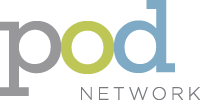I considered providing you with some factual updates about our organization given that our Spring Core meeting just happened in June, but I’m going to save that for later. Instead, I’ve opted for something a bit more conceptual, which feels like a better fit at this point in time.
Since I last wrote to you, the world has continued to be full of turmoil and loss. As people and as educators, we are being asked to find ways to process and address issues like pervasive racism and oppression, the ongoing global pandemic, and the resulting physical and emotional challenges. We are seeing job loss for some, overwork for others. Our higher education institutions are grappling with how the Fall semester (and beyond) could or should proceed. How do we cope? What can we do?
I wish I had a good answer. I’m not sure that anyone does. But perhaps what I can offer is a way of thinking about these kinds of situations. During this time of enormous upheaval, we are navigating various transitions. In their book, Managing Transitions, Bridges and Bridges talk about transitions as a psychological process that starts with an ending which involves letting go of old ways and identities, experiencing an in-between time (dubbed “the neutral zone”), and emerging with a new beginning (p.5). This process is iterative, particularly for complex changes. I have used this framework successfully to better understand change initiatives at work and in my life, by shifting the emphasis from where I’m going to how I’m going to get there. It’s a reminder of the circuitous, multi-phase journey of change, and it validates that time is required and various feelings are involved.
The transition to remote teaching is one example we can likely all relate to. At my institution (like many in Canada), we are continuing to teach (mostly) remotely this Fall and maybe Winter too. For now, faculty have had to let go of face-to-face (f2f) teaching and figure out how to teach online. Educational developers have also had to let go of f2f events (workshops, conferences, consultations) and work though our own transition while helping our instructors with theirs. We had to acknowledge those endings—and all the resulting anger, frustration, and anxiety—but also move to the next phase of the “neutral zone”. This is the phase when nothing works quite right yet, people are overloaded and confused, and systems are unreliable. Sound familiar? But what’s also true about this phase is that it’s a time of enormous creativity when we have more questions than answers and have to challenge “business as usual”. As we move through this phase, the conversations about teaching, learning, and educational development have dug deeper than what I’ve experienced during much of my 24-year career.
Similar creativity is happening through DEI initiatives being worked on by our Core Committee members and beyond (updates coming on these shortly!). We acknowledge that we need to end our reliance on old approaches and navigate our way through to more inclusive and equitable structures, practices, and ways of thinking. Letting go of the familiar enables us to move into that “neutral zone”—with all its risks and wrong turns—and do the learning necessary to generate the ideas that will get us to our new beginnings. There’s a clear organizational commitment to doing the work to make these transitions and engage in our work in different ways.
The uncertain “neutral zone” is also a time for community-building as we try to support one another on the journey through the transition. I’ve been seeing this in our educational development communities through the POD Network and the Canadian Educational Developers Caucus. We need the insights and encouragement of our colleagues to help us through this time of uncertainty. Thankfully, the “You are [still] not alone” POD Check-Ins are continuing for our members in July and August, and our POD Network Open Discussion Group is available 24/7.
Overall, I take strength from knowing that our current uncertain environments are to be expected during any time of change. I hope that you can too. Use the supports around you—your network within POD and beyond is here to help.
Best, Donna
Dr. Donna Ellis
POD Network President
Director, Centre for Teaching Excellence
University of Waterloo, Waterloo, ON Canada
[email protected]
Bridges, W., & Bridges, S. (2016). Managing transitions: Making the most of change. 4th edition.

